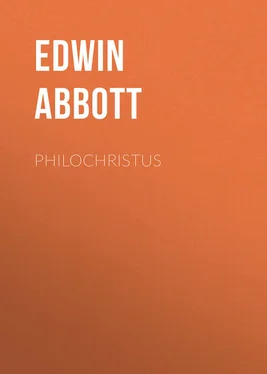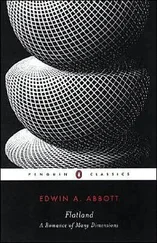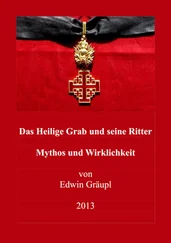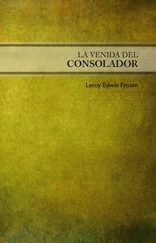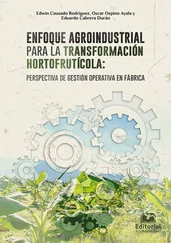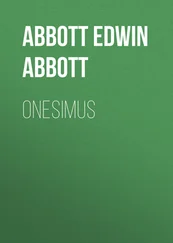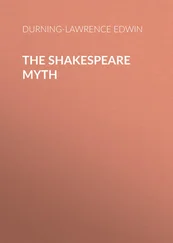Edwin Abbott - Philochristus
Здесь есть возможность читать онлайн «Edwin Abbott - Philochristus» — ознакомительный отрывок электронной книги совершенно бесплатно, а после прочтения отрывка купить полную версию. В некоторых случаях можно слушать аудио, скачать через торрент в формате fb2 и присутствует краткое содержание. Жанр: foreign_antique, foreign_prose, на английском языке. Описание произведения, (предисловие) а так же отзывы посетителей доступны на портале библиотеки ЛибКат.
- Название:Philochristus
- Автор:
- Жанр:
- Год:неизвестен
- ISBN:нет данных
- Рейтинг книги:5 / 5. Голосов: 1
-
Избранное:Добавить в избранное
- Отзывы:
-
Ваша оценка:
- 100
- 1
- 2
- 3
- 4
- 5
Philochristus: краткое содержание, описание и аннотация
Предлагаем к чтению аннотацию, описание, краткое содержание или предисловие (зависит от того, что написал сам автор книги «Philochristus»). Если вы не нашли необходимую информацию о книге — напишите в комментариях, мы постараемся отыскать её.
Philochristus — читать онлайн ознакомительный отрывок
Ниже представлен текст книги, разбитый по страницам. Система сохранения места последней прочитанной страницы, позволяет с удобством читать онлайн бесплатно книгу «Philochristus», без необходимости каждый раз заново искать на чём Вы остановились. Поставьте закладку, и сможете в любой момент перейти на страницу, на которой закончили чтение.
Интервал:
Закладка:
The day was now far spent: so my uncle arose to bid Philo farewell. I thanked him with my whole heart: for righteousness and goodness breathed in his presence; and my spirit was refreshed while I heard him speak. For the very voice of the Lord seemed to sound from him when he said that to afflict the flesh was of no avail without afflicting the spirit, and that the practice of virtue with men should go before the practice of virtue with God. But when I was departed from him, musing as I returned home, then I saw that the philosophy of Philo could in no wise give me peace. For it was not possible that I should feel that enthousiasmos , or divine passion, whereof he made mention, for such a being as Mere Existence: and methought I could feel this enthousiasmos for none save a man, or some similitude of a man.
Therefore my heart went back to that lower revelation whereof he spake, to wit, to God revealed through the world; that is, the Word: and this seemed to me more likely to give peace. But as for Mere Existence, albeit Philo called it the Father of all, yet had he plainly told me he meant this only for the unlearned multitude. And whereas he used one word, God, to signify two things, one thing for the learned, and another for the unlearned; herein, to say truth, his doctrine brought to my mind a certain tale of the poet Homer, which my uncle had but yesternight related unto me; how a certain mighty man of valour, and a wise counsellor among the Greeks, Ulysses by name, deceived the giant Polyphemus, saying that his name was NOMAN. Wherefore, when Polyphemus said that NOMAN had blinded him, his brethren, the giants, thought that he meant to say that not a man, but a god, had blinded him. And even so Philo seemed to me, when he spake to the wise and learned, to call God no man ; but when he spake to the foolish and unlearned, he called Him NOMAN, making them think He was a person.
But what troubled me in this revelation was, that it seemed not to leave any room or place for the Messiah, the Redeemer of Israel. And “Why,” thought I, “should the Word reveal himself only through the world, and not through mankind? But if he revealed himself through mankind (which Philo also would allow), why might he not reveal himself through a Messiah?” All that night I lay awake musing on the same thing, and asking whether it might not be that Philo spake truth in proclaiming the revelation of the Word, and yet John the son of Zachariah might also speak truth in proclaiming the revelation of the Messiah. But after long tossing of the matter in my mind I concluded that there was no cause why the one should destroy the other: so I prayed that both might be true.
But as for my former studies, and my old strict observances of the Sabbath and of the precepts concerning the use of purifications and concerning the consumption of nail-parings, and concerning the wearing of tassels, behold, all these matters began to seem unto me things far off, forgotten, and childish. And though I knew not clearly whither to turn, yet I felt at least that to them I could return no more; for I perceived that, even if I became as perfect in these matters as Abuyah the son of Elishah himself, yet should I none the more attain to peace, nor could I find in them that food for want whereof my soul was an-hungered. Wherefore I was now resolved in my mind of this one thing, in any case, namely, that the observance of the smaller precepts of the Law could not gain for me that Banquet, or Manna, or heavenly Draught of the Word of God whereof Philo had made mention. But what the true Manna might be, or how I might attain to it, this I did not as yet perceive. For I was, at that time, even as a little child in a boat without oars or sail, which hath drifted out unawares far into the open sea.
CHAPTER VI
Not many days after my discourse with Philo the Alexandrine, when I returned from the Great Library to my uncle’s house, a messenger was waiting for me, bearing a letter from Rabbi Jonathan. Opening it I read that my mother was suffering under a grievous disease, and being, as she thought, nigh unto death, she would fain see me before she died. So I straightway made all things ready for my journey, and having bidden farewell to my uncle, I set sail on the morrow from Alexandria, and on the fifth day arrived in Jerusalem; where, according to my mother’s desire, I purposed to offer sacrifice unto the Lord, and to make vows for my mother’s health.
The sun was well nigh set when I came to Jerusalem. But on the morrow, as I went up to the Temple through the narrow ways, amid the throng of them that sold oxen and sheep and doves, new thoughts and doubts rose in my heart, such as I had never felt before when I had gone up to sacrifice during the three great feasts. Methought the Lord must needs turn His face from so much traffic and disorder and defilement of His Holy House. On both sides of the gate Horæa, as far as Solomon’s porch, were shops of merchants and stalls of money-changers. Even in the Court of the Gentiles, which is a part of the Temple itself, there were penned flocks of sheep and oxen, with drovers and salesmen. Pilgrims and proselytes from all parts pressed and thronged; buyer reviled seller, and seller buyer; from the stalls of the money-changers one might hear the clink of money mixed with the sounds of contention. The stench also of so many cattle, being increased by reason of the great heat, made the ill-savour of the place almost past bearing. Also I could not but marvel at the greediness of the sellers. For the Chief Priests had let out the right of selling offerings at a great price, to make profit thereof for themselves, insomuch that a single dove was sold for a gold piece.
Then, again, when it came to the offering of the sacrifice, I must needs wait for the space of an hour whilst others were offering up their sacrifices; and the Levites and priests seemed all in haste, and did their work rather as an handicraft than as worship; and many others were sacrificing at the same time, and the cries and struggles of the victims, and the smoke and reek of the fat, and the blood flowing on all sides, caused the place to seem rather like a butcher’s shambles than like the House of the Lord. Now all this I had known and seen aforetime, yet had I never taken it to heart. But now there came to my mind certain words of Philo touching the sect called the Essenes, how they worship the Lord with an exceeding carefulness of purity: wherefore they think it not meet to sacrifice the blood of beasts unto the Lord, but they offer up their own hearts, purified so as to be a fit offering for Him. Also at this time (perchance because I was but freshly come from the lecture-rooms of the philosophers of Alexandria, or belike because the Lord would have it so to be, willing by easy degrees to open mine eyes, and to reveal unto me His Messiah) so it was that I could think of naught but the words of Isaiah the Prophet wherein the Lord saith, “I am full of the burnt offerings of rams, and the fat of fed beasts, and I delight not in the blood of bullocks, or of lambs, or of he-goats.” These words, I say, so possessed my soul that, even when the victim was being slain, I could not refrain from repeating them to myself again and again; albeit against my will, being fearful to pollute the sacrifice of the Lord. But though I made shift to dissemble my trouble until the sacrifice was ended, for fear of offending the priests, yet when I had returned to my lodging in the city, I could not forbear weeping; for behold, all worship seemed as vanity, and the children of men were in mine eyes as beasts of the field, void of understanding and given over to all folly; and God was He that had made them thus. Therefore I cried aloud in the fervency of my passion and said, “It is written, ‘On three things the world is stayed: on the Law, and on the Worship, and on the Bestowal of Kindnesses;’ and lo, I know not the interpretation of the Law; and worship is naught but vanity; and as for kindness, my heart is dry and empty of love, so that there is no kindness in me.”
Читать дальшеИнтервал:
Закладка:
Похожие книги на «Philochristus»
Представляем Вашему вниманию похожие книги на «Philochristus» списком для выбора. Мы отобрали схожую по названию и смыслу литературу в надежде предоставить читателям больше вариантов отыскать новые, интересные, ещё непрочитанные произведения.
Обсуждение, отзывы о книге «Philochristus» и просто собственные мнения читателей. Оставьте ваши комментарии, напишите, что Вы думаете о произведении, его смысле или главных героях. Укажите что конкретно понравилось, а что нет, и почему Вы так считаете.
